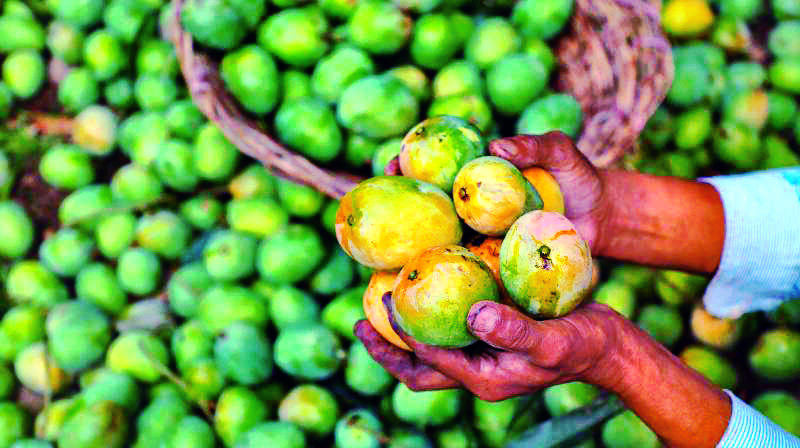FSSAI talks tough against unauthorised use of calcium carbide for fruit ripening

New Delhi: Cracking a whip against food business operators (FBO) for not complying with the standard operating procedures (SoPs) for artificial ripening of fruits, the Food Safety and Standards Authority (FSSAI) of India (FSSAI) has on Thursday asked food commissioners of all states and Union Territories (UT) to take action against the unauthorised use of calcium carbide for the ripening of fruits.
Artificial ripening of fruits is done in a controlled manner in order to achieve the optimum level of ripening before time which would be then accepted by consumers and it also allows a longer shelf life of these fruits. For instance, ripe mangoes turn soft and perishable in the logistical process. Therefore, they are carried in unripe conditions and later artificially ripened at the destination market.
Further, in order to ensure that artificially ripened fruits are safe and healthy to consume, FSSAI permits the use of ethylene gas at a concentration of up to 100 ppm depending upon the crop, variety and maturity for the artificial ripening of fruits.
The FSSAI has also asked food commissioners to undertake a special awareness drive among FBOs about the usage of ethylene gas, a ripening agent, in an approved manner. The food regulator has also directed enforcement agencies to take strict action against any FBO found indulging in unapproved practices.
Notably, the use of calcium carbide, one of the harmful artificial fruit ripening agents, has been prohibited as per the provision in sub-regulation of Food Safety and Standards (Prohibition and Restriction on Sales) Regulation, 2011.
Calcium carbide, also known as ‘masala’, is commonly used in mining and metal industries as well as in the production of acetylene gas. It is a highly reactive compound and releases acetylene gas which is used to artificially ripen fruits. However, its use can have serious health consequences.



